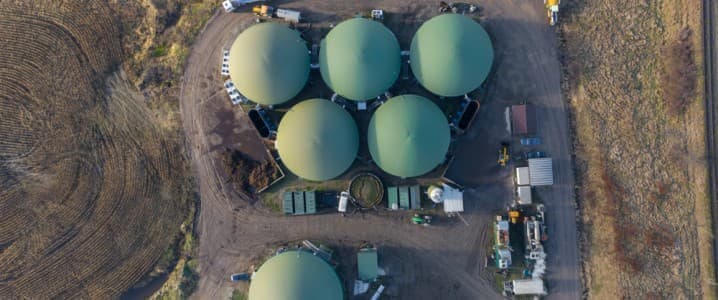Regulatory chaos is upending the biofuels industry. Pending changes and high levels of uncertainty at the Environmental Protection Agency (EPA) could have huge impacts on the sector, and in particular on bio-diesel. In the previous Trump administration, extensive waivers were issued to small refineries, allowing them to bypass well-established biofuels quotas, taking a huge bite out of the sector.
Already, the volume of petitions for exemptions from the federal-level Renewable Fuel Standard “has risen dramatically in recent months” according to the University of Illinois economist Scott Irwin, as reported by Agri-Pulse this week. There are currently 139 such petitions pending for compliance years 2016-2025.
Renewable Fuel Standard (RFS) quotas – also commonly known as renewable volume obligations (RVOa) – require certain levels of biofuels (such as products like corn-based ethanol, manure-based biogas, and wood pellets) in the national fuel mix to supplement petroleum-based fossil fuels. “Renewable fuel” is an umbrella term used by the EPA to encompass “fuel produced from planted crops, planted trees, animal waste and byproducts, and wood debris from non-ecological sensitive areas and not from federal forestland,” according to a summation from Grist.
Most recently, RVOs were proposed and finalized annually until the compliance year 2023 at 20.94 billion gallons, with standards were set through the end of this year at 22.33 billion gallons. This means that the Trump administration needs to begin considerations for 2026 requirements. But so far the highly disruptive Trump administration’s approach to biofuels targets and policy remains opaque at best.
In response to extreme market uncertainties fueled by this opacity, U.S. oil and biofuel groups banded together last week in a highly unusual show of solidarity to urge the Trump administration to increase biofuel blending mandates. These groups included the American Petroleum Institute, one of the United States’ largest oil trade organizations, and the Renewable Fuels Association and Growth Energy. However, The American Fuel and Petrochemical Manufacturers notably did not participate in the campaign.
“While our organizations have not always agreed on every detail, we have joined together in recognition of the critical role liquid fuels serve in the American economy, to advance liquid fuels, and ensure consumers have a choice of how they fuel their vehicles,” the groups penned in a letter to Lee Zeldin, the new EPA administrator. “We believe strong, steady volumes for conventional biofuel targets, biomass-based diesel, and advanced fuels would more accurately reflect the availability and ongoing investments in feedstocks and production capacity,” they went on to write.
Anxieties over potential future cutbacks and regulatory uncertainty and chaos in the United States is already creating tangible fallout in the international biofuels sector. A private equity-backed biofuel refinery in Canada halted operations in December, after investing firms Cresta Fund Management and Energy Capital Partners had already poured over $650 million combined into the project. When operational, most of the refinery’s output went directly into U.S. markets. As such, market disruptions tied to U.S. tax-credit policies led to low profit margins and an uncertain future for the refinery, resulting in the decision to put the plant on ice.
The Wall Street Journal reports that the idling of the project “underlines the risks faced by asset managers in a nascent renewable-fuel sector still highly dependent on government policies for support.” Anxieties about these risks are widespread. One of the requests included in the letter sent to Zeldin by oil and biofuels groups was to urgently release multi-year standards for the Renewable fuel standard “to provide more market certainty for both refiners and renewable fuel producers” according to reporting from Reuters.
Biofuel quotas have long been contentious among fossil fuel supporters and environmentalists alike, though Big Oil seems to be changing its tune in the interest of market stability. “Relying on dirty fuels like factory farm gas and ethanol to clean up our transportation sector will only dig a deeper hole,” Tarah Heinzen, legal director for the non-profit environmental watchdog group Food & Water Watch said during the last round of Renewable Fuel Standard deliberations in 2023. “The EPA should recognize this by reducing, not increasing, the volume requirements for these dirty sources of energy in the Renewable Fuel Standard.”
By Haley Zaremba for Oilprice.com
More Top Reads From Oilprice.com
